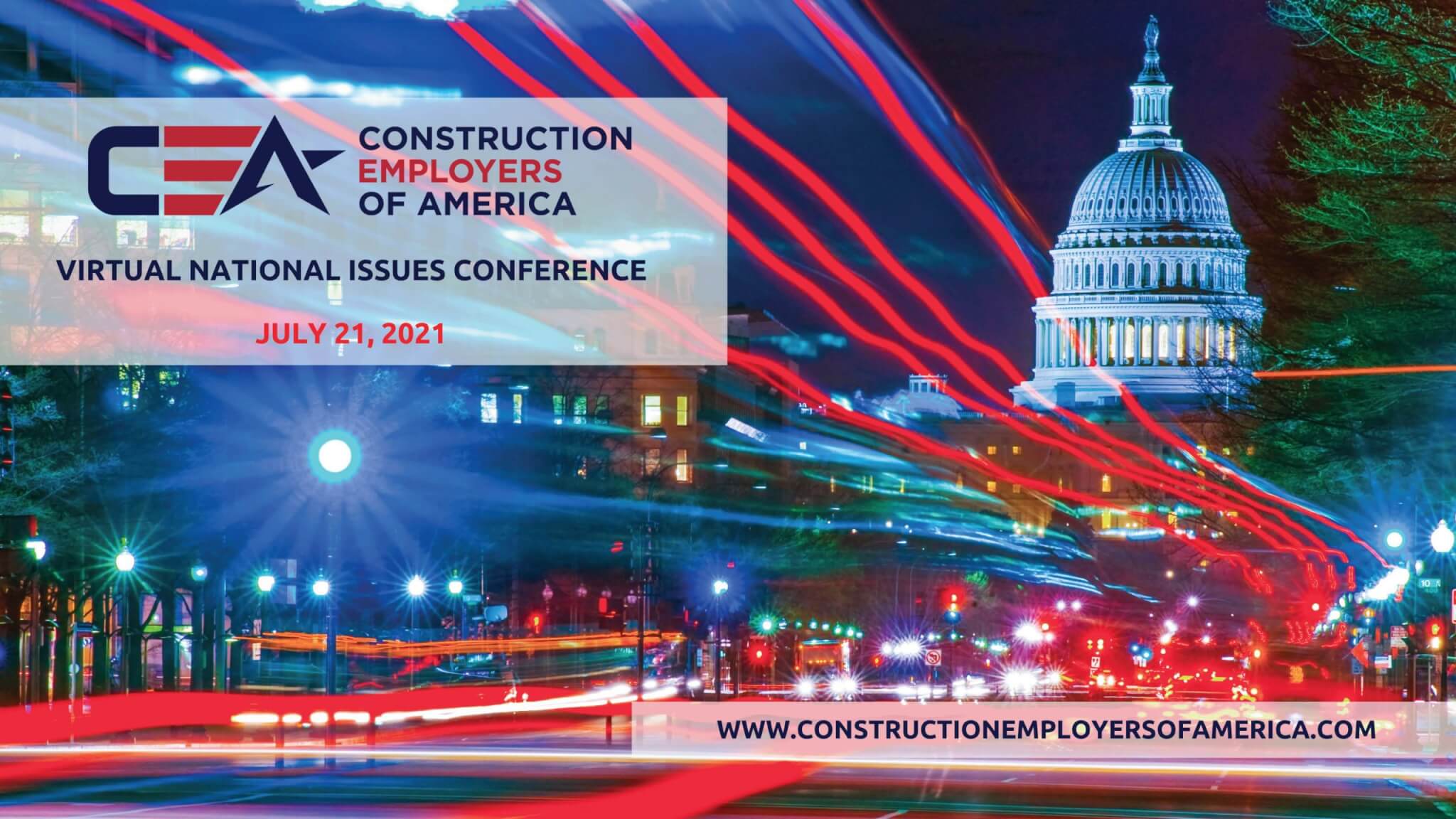
MCAA’s Government Affairs Committee offers an update on the latest happenings on Capitol Hill, including tax credits available to employers under the American Rescue Plan (ARP) and the rescinding of the Trump Administration’s pending regulations that would have relaxed safeguards against worker misclassification. The committee remains busy protecting our members’ interests on Capitol Hill.
ARP Expands Paid Family & Medical Leave Tax Credits
The American Rescue Plan (ARP) has expanded the paid family and medical leave tax credits. The credits include added coverage for collectively bargaining health, pension and apprenticeship costs. If employers voluntarily provide the leave, they may claim the credit before it expires on September 30, 2021.
NCCMP Summarizes the Multiemployer Provisions of the American Rescue Plan
The National Coordinating Committee for Multiemployer Plans (NCCMP) summarizes the ARP provision of the tax credit in its Multi-Elert® on the passage of the American Rescue Plan:
Summary of the Multiemployer Provisions of the American Rescue Plan—Other Provisions
Sections 3131 and 3132—Credit for Paid Sick and Family Leave
In addition to 100% of the qualified sick or family leave wages paid by an employer, employers with fewer than 500 employees may also claim as a tax credit the amounts paid to the participant’s group health plan as well as the portion of the employer’s collectively bargained contributions to a defined benefit pension plan and to a registered apprenticeship program that are allocable to the qualified sick leave wages or qualified family leave wages, subject to certain daily and aggregate limitations. Qualified sick or family leave wages are wages or compensation paid to an employee who is unable to work or telework for certain specified reasons related to the COVID-19 public health emergency.
The Multi-Elert also describes the ARP benefits provisions overall, including primarily the Butch Lewis Act multiemployer pension plan provisions.
DOL Rescinds Pending Regulations that Would Have Relaxed Worker Misclassification Safeguards
Effective May 6, 2021, the Department of Labor (DOL) rescinded the Trump Administration’s pending regulations that would have relaxed safeguards against worker misclassification under the Federal Fair Labor Standards Act, the Federal wage-and-hour law.
The Biden Administration’s Labor Department solicited comments on the proposed relaxation of the well-settled rules and determined that the hasty Trump Administration changes impermissibly discounted well-established judicial and regulatory precedents in favor of a more general and permissive analysis of formerly proper employee classification criteria. With this well considered judgment, announced May 5, 2021, the Labor Department returns the issue to the status quo before the last-minute Trump Administration changes.
MCAA and the Construction Employers of America commented on the proposed rescission, arguing that the prior Administration’s rulemaking was an expedient measure that threatened to undermine well-established safeguards supporting responsible employer employee classification judgments and workforce investments. However, even with this remedial step, still more needs to be done.
MCAA and a great many other construction industry employer groups have long argued that the subject of worker misclassification is long overdue for a more comprehensive legislative and regulatory overhaul. This Labor Department action is a step in that direction, but MCAA has asserted that Congress should eliminate the long lingering legislative permission for grandfathering misclassification and support an interagency review of the issue in its entirety.
With so much of the country’s employment protections and social and economic policy with respect to health and welfare benefits premised on the proper and responsible adherence to legal worker classification practices, responsible employers and the taxpayers deserve more scrupulous government policy attention to rampant misclassification across all industries and the gig economy.
The tax gains from stemming rampant misclassification abuse could go a long way toward funding the upcoming infrastructure investment program. It would further ensure that work is awarded to responsible contractors, rather than allowing misclassification to spread and thereby continue to incentivize disinvestment in proper workforce classification.
Questions about any of this information should be directed to John McNerney.


